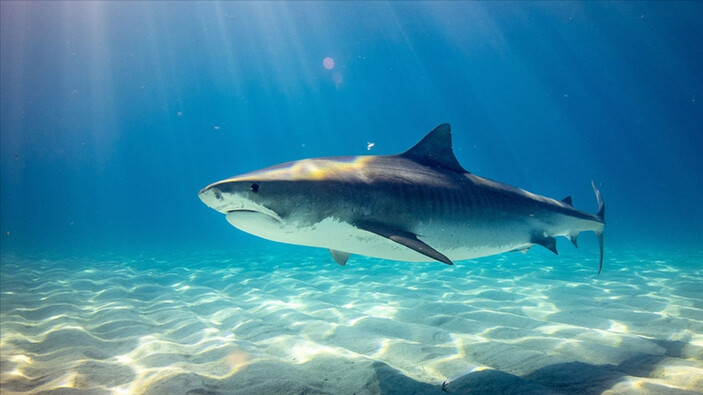Shark research: They hallucinate from drugs thrown into the sea

In a study conducted in the US state of Florida, it was reported that sharks exhibit behaviors contrary to their nature and “as if they are hallucinating” due to cocaine bales released into the sea.
A study conducted in the USA touched upon a remarkable issue.
According to the news of The Guardian, working as a researcher at the Mote Marine Laboratory in Florida, Dr. Tracy Fanara and her team studied the impact on marine life of cocaine bales released into the ocean by drug traffickers operating in Florida waters.
The researchers, who observed the sharks around the islands at the southern tip of Florida for 6 days, determined that the fish exhibited unusual behavior.
Sharks run in circles around an imaginary prey
Researchers observed that the Hammerhead Shark, which normally avoids humans, swam towards humans after consuming cocaine, and a hallucinating sand shark circled around an imaginary prey.
Researchers, who threw bales of fish food instead of cocaine into the water for experimental purposes, noted that the sharks attacked the bales.
Fanara and her team plan to collect blood samples from the fish to continue their research and detect the cocaine consumed by the sharks.
More than 500 shark species live in the oceans
On the other hand, according to a study published in the journal Nature, the shark population in all oceans decreased by 71.1 percent from 1970 to 2018.
The Greenland shark, which has an average lifespan of 272 years but can live up to 400 years, is the longest living vertebrate, according to research published in the journal Science.
Sharks were on earth 190 million years before the dinosaurs
According to research conducted at the University of Miami, sharks were on earth 90 million years before the trees and 190 million years before the dinosaurs.
Sharks, which do not have any organs for producing sound, can detect electromagnetic waves to find their way in the ocean and detect their prey.
Some species of sharks, such as the Frilled shark, can stay pregnant for up to 3 years, with an average of 11 to 12 months pregnant.






